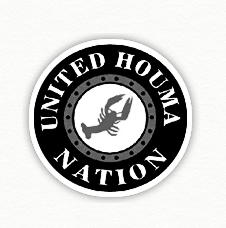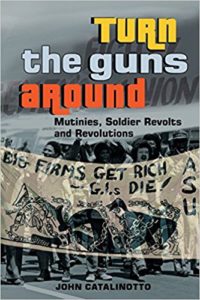By Gregory William
Chris Dier was born and raised in St. Bernard Parish, Louisiana. He was displaced by Katrina, but returned home in 2010. Like his mother, he is a history teacher at Chalmette High School, and author of a new book, Blood in the Cane Fields: The 1868 St. Bernard Parish Massacre.
W.V.: What was the St. Bernard Parish Massacre?
Chris Dier: In St. Bernard Parish there was a massacre in 1868, right after the Civil War. Following the war, many black males had gained the right to vote and that threatened the economic relations of these parishes, where white supremacy ruled the land. Around New Orleans, there were sugar-producing regions where black people were the majority, and had been locked into slavery. When they were emancipated and gained voting rights, many voted for the Republican Party, which in that time had sided with liberation. This threatened the white political and economic elite. That elite pushed the narrative that all the problems after the Civil War were caused by the freed people and a lot of poor whites bought into it…1868 was the first presidential election after the war. The Republican candidate was Union veteran, Ulysses S. Grant, and the Democratic candidate was Horatio Seymour, an opponent of Reconstruction and rights for African Americans…Days before the election, armed white groups, many poor planters – not the elites themselves, who had been stoking the fire – carried out one of the most violent episodes of the Reconstruction era in Louisiana. These groups went from plantation to plantation and executed up to 135 people in the streets.
W.V.: So this was a reaction to Reconstruction, which was coming down from the federal level, but did you also uncover information about what freed people were doing in the region at a grassroots level to secure their rights?
Chris Dier: Yes. The first Republican meeting in St. Bernard was a group of freed people coming together. They had their own processions and meetings. There were a lot of grassroots efforts in Louisiana. Interestingly, 19 years after the massacre, in 1887, black and white St. Bernardians marched in unison against the planter elite. That unity is terrifying to the rich…The idea of race had to be strongly imposed over the centuries, going back to the 13 colonies, where there were many instances of poor whites joining in struggle with enslaved people… During the labor movement in New Orleans, blacks and whites came together in 1892 and 1907 along the Mississippi River fighting for their common rights, and this is what brought about some of the harshest reactions from the rich…There are many lessons in this history for the struggle now.
W.V.: How have your students responded to this research?
Chris Dier: My students have been very eager to explore this event. Many see their last names in the book. Some of the last names of perpetrators as well as victims are those of students sitting in the same classroom today. This is their history and most knew nothing about it…It is so important for young people to learn about history, because they are the ones who are going to carry struggle forward.


